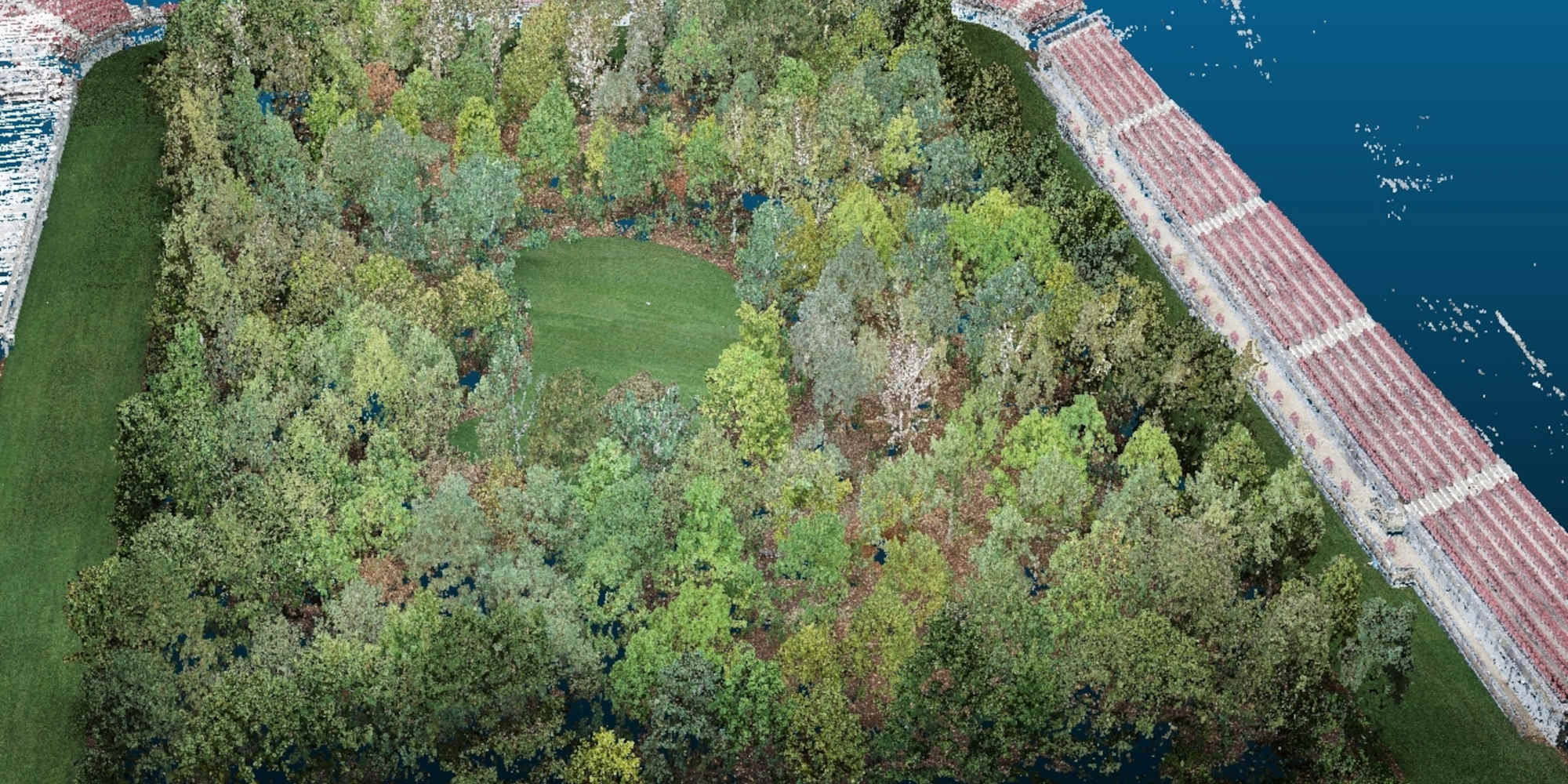Ars Electronica x Austrian Council for Robotics and AI
Das Panel AIxEcology befasst sich mit der Bedeutung computergesteuerter Systeme für Ökologie und Umwelt. Künstliche Intelligenz kann eingesetzt werden, um Wasser zu sparen, den Artenverlust zu stoppen oder bestimmte Pflanzen im Feld ausfindig zu machen. Die optimierte Überwachung von Ökosystemen kann wesentlich dazu beigetragen, die Risiken des Klimawandels zu verringern und diesen entgegenzusteuern, zumal immer mehr Projekte versuchen, Daten und künstliche Intelligenz dafür zu nutzen.
Das enorme Potenzial der KI birgt aber auch eine große Verantwortung. Dazu gehören ethische und soziale Fragen, aber auch Sicherheits- und Kontrollrisiken, wie etwa die Frage, wie Systeme vor unberechtigtem Zugriff geschützt werden können.
Moderation: Martina Mara (AT)
Speaker: Carla Gomes (US/PT), Tega Brain (AU), Mark Coeckelbergh (BE), Lynn Kaack (DE), Stafano Nativi (IT), Claire Monteleoni (US)
Video
Projekt Credits
This event is realized as part of the European ARTificial Intelligence Lab and co-funded by Creative Europe Programme of the European Union.
Biography

Carla Gomes (US/PT)
Carla Gomes is the Ronald C. and Antonia V. Nielsen Professor of Computing and Information Science and the director of the Institute for Computational Sustainability at Cornell University. Gomes received a Ph.D. in computer science in the area of artificial intelligence from the University of Edinburgh. Her research area is Artificial Intelligence with a focus on large-scale constraint reasoning, optimization, and machine learning. Recently, Gomes has become deeply immersed in research on scientific discovery for a sustainable future and more generally in research in the new field of Computational Sustainability. Computational Sustainability aims to develop computational methods to help solve some of the key challenges concerning environmental, economic, and societal issues in order to help put us on a path towards a sustainable future. Gomes is the lead PI of an NSF Expeditions in Computing award Gomes has (co-)authored over 150 publications, which have appeared in venues spanning Nature, Science, and a variety of conferences and journals in AI and Computer Science, including five best paper awards. Her research group has been supported by over $50M in basic research funds. Gomes is a Fellow of the Association for the Advancement of Artificial Intelligence (AAAI), a Fellow of the Association for Computing Machinery (ACM), and a Fellow of American Association for the Advancement of Science (AAAS).
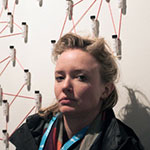
Tega Brain (AU)
Tega Brain is an Australian-born artist and environmental engineer whose work examines issues of ecology, data systems and infrastructure. She has created wireless networks that respond to natural phenomena, systems for obfuscating fitness data, and an online smell-based dating service. She has recently exhibited at the Whitney Museum of American Art, the Guangzhou Triennial in Guangdong and the Transmediale Festival at the Haus der Kulturen der Welt in Berlin. Tega is an Assistant Professor of Integrated Digital Media, New York University and she works on open source software projects with the Processing Foundation. She has been awarded residencies and fellowships at Data & Society, Eyebeam and the Australia Council for the Arts.

Mark Coeckelbergh (BE)
Prof. Dr. Mark Coeckelbergh is a full Professor of Philosophy of Media and Technology at the Philosophy of Department of the University of Vienna and former President of the Society for Philosophy and Technology (SPT). His expertise focuses on ethics and technology, in particular robotics and artificial intelligence. He is currently a member of various entities that support policy building in the area of robotics and artificial intelligence, such as the European Commission’s High Level Expert Group on Artificial Intelligence, the Austrian Council on Robotics and Artificial Intelligence, and the Austrian Advisory Council on Automated Mobility. He is the author of 12 philosophy books and numerous articles, and is involved in several European research projects on robotics (e.g. INBOTS).
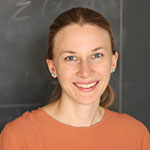
Lynn Kaack (DE)
Lynn Kaack is a Postdoctoral Researcher in the Energy Politics Group at ETH Zürich, and a chair of the organization Climate Change AI. Her research applies methods from statistics and machine learning to inform climate mitigation policy across the energy sector. She obtained a PhD in Engineering and Public Policy and a Master’s in Machine Learning from Carnegie Mellon University.
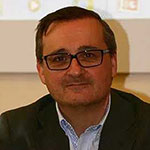
Stafano Nativi (IT)
is the Big Data Lead Scientist of the Joint Research Centre (JRC) of the European Commission (EC). His present research activity deals with the Digital Transformation of our Society and AI. He coordinates the JRC AI&BD Community of Practice and is responsible of the AI Standardization task of the AI-Watch initiative of the EC. He is the JRC contact point with the ISO JTC1 –SC42 on AI. He is co-editor of the ‚AI section” of the “Remote Sensing” journal (MDPI) and associate editor of the “Big Earth Data” journal (T&F).

Claire Monteleoni (US)
Claire Monteleoni is an Associate Professor of Computer Science at the University of Colorado Boulder, which she joined in 2018, following positions at University of Paris-Saclay, CNRS, George Washington University, and Columbia University. She completed her PhD and Masters in Computer Science at MIT and was a postdoc at UC San Diego. She holds a Bachelor’s in Earth and Planetary Sciences from Harvard. Her research on machine learning for the study of climate change helped launch the interdisciplinary field of Climate Informatics. In 2011, she co-founded the International Conference on Climate Informatics, which turns 10 years old in 2020, and has attracted climate scientists and data scientists from over 20 countries and 30 U.S. states. She gave an invited tutorial: Climate Change: Challenges for Machine Learning, at NeurIPS 2014.
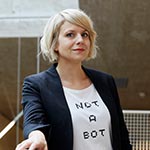
Martina Mara (AT)
Martina Mara earned her doctorate in Psychology at the University of Koblenz-Landau with a dissertation on anthropomorphic machines. After having worked for non-university research institutions such as the Ars Electronica Futurelab and the Institute of Design Research Vienna for more than a decade, she became Professor of Robopsychology at the Johannes Kepler University Linz in 2018. Her current research interests include psychological effects of simulated human-likeness and intention signaling of collaborative robots. Mara is a member of the Austrian Council for Robotics and Artificial Intelligence (ACRAI), a board member of the Ludwig Boltzmann Society, and a newspaper columnist. Among other awards, she received the Vienna Women’s Prize and the Futurezone Award in the „Women in Tech“ category.
